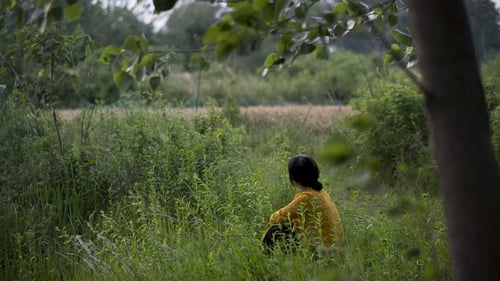Fan Jian
出生 : 1977-03-04,
略歴
Fan Jian is a documentary director who focuses on Chinese social issues through character-driven storytelling. He is the documentary branch member of the AMPAS. Fan has directed six feature-length documentary films, most recently STILL TOMORROW, winner of the Special Jury Award at the IDFA 2016. His other films include MY LAND (Berlinale 2016; supported by Sundance Documentary Fund) and THE NEXT LIFE (IDFA 2011; Jury Prize at Guangzhou Documentary Film Festival 2011). His work has also screened in competition at Hot Docs, Full Frame, Sheffield, Busan, and dozens of other film festivals around the world. Fan studied at Beijing Film Academy and is now based in Chongqing, China. (Bio as of 2021)

Producer

Cinematography
After a massive earthquake razed a Chinese city to the ground, thousands of parents who lost their children are encouraged to give a new birth so that they can move on with their lives. AFTER THE RAIN follows two of these families for over a decade. Haunted by fear, resentment, and unspeakable grief, the families find hope beyond their intergenerational trauma is hard to build.

Director
After a massive earthquake razed a Chinese city to the ground, thousands of parents who lost their children are encouraged to give a new birth so that they can move on with their lives. AFTER THE RAIN follows two of these families for over a decade. Haunted by fear, resentment, and unspeakable grief, the families find hope beyond their intergenerational trauma is hard to build.

导演

Director of Photography
In China, single women are under immense pressure to marry young or face the stigma that comes with being "leftover." Leftover Women follows three hopeful singles seeking to define love on their own terms.

Director
Yu Xiuhua was raised to hope for little from her life in the rural Chinese province of Hubei. At 19, Xiuhua’s mother encouraged her to marry a man nearly twice her age, fearful no one else would accept a wife with Xiuhua’s condition — cerebral palsy. But as her 20th anniversary approaches, Xiuhua’s poetry goes viral, and she becomes the voice of a rising feminist movement throughout China.

Director
Chen Chun, My Land’s central figure, left the countryside fifteen years ago to settle in the outskirts of Beijing. Happily living with his family in the shadow of the capital, he makes a living by growing and selling vegetables. However, the city, ceaselessly expanding, eventually reaches Chen’s farm. The landowner, saying that the area will be redeveloped, tries to force Chen to leave.

Editor
In May 2010, Ye Hongmei, a native of Dujiangyan city in Sichuan province, started her Odyssey to get pregnant again. Her eight year old daughter was killed in the devastating Wenchuan earthquake of 2008, a catastrophe that killed and maimed more than 6000 children. Due to China's one-child policy, most of the grieving families were left childless.

Cinematography
In May 2010, Ye Hongmei, a native of Dujiangyan city in Sichuan province, started her Odyssey to get pregnant again. Her eight year old daughter was killed in the devastating Wenchuan earthquake of 2008, a catastrophe that killed and maimed more than 6000 children. Due to China's one-child policy, most of the grieving families were left childless.

Director
In May 2010, Ye Hongmei, a native of Dujiangyan city in Sichuan province, started her Odyssey to get pregnant again. Her eight year old daughter was killed in the devastating Wenchuan earthquake of 2008, a catastrophe that killed and maimed more than 6000 children. Due to China's one-child policy, most of the grieving families were left childless.

Director
With his camera hidden in the back of a Beijing taxi, director Fan Jian manages to overhear the daily conversations between driver and passengers. In the cramped space of the car, customers share their secrets, their hopes, their conjectures about the future, and sometimes even offer advice to the driver.



